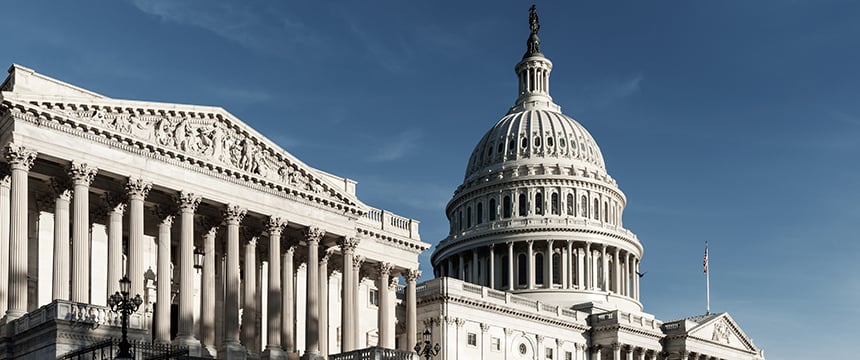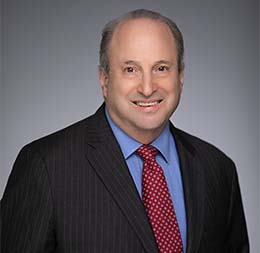Accepting CARES Act Assistance: Congressional and Other Investigative Risks

While recent federal funding has provided a lifeline for some companies, accepting government assistance under the CARES Act also carries significant legal, political and reputational risks for recipients. Loans are the tip of the iceberg: there will be aggressive Congressional and agency oversight of companies who received and spent funding. Especially given the backdrop of an upcoming Presidential election, these investigations will be fast and furious.
We know this dynamic firsthand from our immersion in similar investigations following the financial crisis of 2008-10. Then, Congressional Committees demanded corporate executives testify, DOJ issued subpoenas, and press leaks were prevalent. When Congress passed the Emergency Economic Stabilization Act of 2008 that created the $700 billion Troubled Asset Relief Program (TARP), Congress’ well-intended emergency also created two agencies to keep an eye on how the money was used by recipients — the Financial Stability Oversight Board (FSOB) and the Congressional Oversight Panel (COP), chaired by Elizabeth Warren.
Following several Congressional hearings and investigations, many members of Congress felt the 2008 Act did not contain sufficient safeguards to ensure money was spent correctly or provide adequate authority to punish individuals and institutions alleged to have misused funds. This time, when Congress enacted the CARES Act, it simultaneously created several watch dog agencies to monitor and investigate misuse of funds, and directed several existing federal enforcement agencies to oversee and investigate recipients of CARES Act assistance.
As a result, companies and individuals who accept CARES Act assistance face potential scrutiny by a myriad of federal agencies, Congress, the news media, watch dog organizations, as well as state officials, most notably state attorneys general and state legislatures. These are the primary oversight entities:
New Oversight Authorities Created by CARES Act
Special Inspector General for Pandemic Recovery
CARES established a Special Inspector General for Pandemic Recovery to scrutinize the Secretary of the Treasury’s handling of funds distributed under the Act and the recipients of assistance. The Office is mandated to “conduct, supervise, and coordinate audits and investigations of the making, purchase, management, and sale of loans, loan guarantees, and other investments made by the Secretary of the Treasury” under the CARES Act. It has broad authority to investigate other programs under which the Treasury made investments, including Main Street Lending and capital markets programs administered by the Federal Reserve Board.
The Special IG has the power to collect detailed information on loans and other investments, including the recipient receiving the assistance, the rationale for granting loans and other assistance, the management of each investment, as well as the status of outstanding loans, loan guarantees and other assistance. It has the authority to issue subpoenas, as well as refer cases to the Department of Justice for initiation of a criminal and/or civil False Claims Act investigation.
President Trump has nominated Brian Miller, formerly Inspector General of the General Services Administration, to serve as the Special IG for Pandemic Recovery.
Pandemic Response Accountability Committee
CARES also established a Pandemic Response Accountability Committee (PRAC) to “prevent and detect fraud, waste, abuse and mismanagement” and “mitigate major risks that cut across program and agency boundaries.” The PRAC operates under the aegis of the Council of the Inspectors General on Integrity and Efficiency (CICIE). The members of PRAC are drawn from the Inspectors General (IG) of major federal departments and agencies and any other inspector general selected by the Chairperson. Thus far no chair of PRAC has been selected.
Among its functions, the PRAC has the authority to:
- Audit and review spending under the CARES Act, including wasteful spending, government contracts, poor contract management and other abuses of authority. The reviews and audits will be sent to the appropriate department or agency IG.
- Conduct random audits.
- Review the effectiveness, efficiency and economy of programs operated under the Act, as well as fraud, waste and abuse.
- Review whether competitions for contracts and grants were conducted properly.
- Refer cases to DOJ where there are reasonable grounds to believe criminal statutes have been violated.
The PRAC has authority to compel witness testimony and subpoena documents.
The PRAC’s authority expires on September 20, 2025.
COVID-19 Congressional Oversight Commission
The CARES Act established a Congressional Oversight Commission (COC) to oversee the executive branch’s spending of CARES Act funds and review the programmatic and operational effectiveness of the programs created under the Act. The oversight authority extends to the Federal Reserve Board. The commission may hold hearings and take testimony in the preparation of its reports to Congress. The Commission is composed of five members selected by both parties of the House and Senate. The Speaker and Senate Majority Leader jointly select the fifth member, who will serve as Chairperson. Speaker Nancy Pelosi chose Rep. Donna Shalala, who also served HHS Secretary under President Clinton, Minority Leader Kevin McCarthy selected Rep. French Hill of Arkansas. Majority Leader Mitch McConnell has named Sen. Pat Toomey (PA). Minority Leader Chuck Schumer chose Bharat Ramamuti, who was Senior Counsel for Banking and Economic Policy for Senator Elizabeth Warren (MA) from 2013-2019. So far, the Speaker and Majority Leaders have not chosen a chairperson.
Already Existing Oversight Authorities
Congress
Although Congress possess neither enforcement nor prosecutorial authority, it has enormous power to damage the reputations and financial condition of businesses and individuals. It has broad oversight authority over government programs to investigate whether government funds are spent wisely. Congress will closely monitor everything associated with the COVID-19 crisis. It can also pass legislation as a result of their investigations that can do lasting damage to businesses and the people who own and manage every type of business.
Moreover, there are virtually no legal constraints on members of Congress from making false or irresponsible statements about individuals or business entities since the U. S. Constitution grants them very broad immunity from being sued for anything they say in connection with their legislative duties.
Several Congressional Committees and individual Senators and House members have already called for investigations and other forms Congressional scrutiny concerning issues related to COVID-19 and the CARES Act. These Congressional Committees have authority to subpoena records and compel witnesses to testify. Although this authority is difficult to enforce, the negative public attention associated with refusing to cooperate with Congressional investigations can be very damaging to reputations of those companies and individuals.
The following committees that will likely monitor and investigate CARES Act Implementation:
House
Energy and Commerce Committee:
- Broad jurisdiction to investigate, particularly anything related to health care and pharmaceuticals
- Already has an active and well-staffed investigations subcommittee
Government Oversight and Reform Committee:
- Primary oversight and investigations committee of the House
Financial Services Committee:
- Jurisdiction over financial assistance programs under CARES Act
Education and Labor Committee:
- Jurisdiction over health programs and jobs assistance
Small Business Committee:
- Jurisdiction over SBA and its PPP loans
Ways and Means Committee:
- Jurisdiction over anything involving the Tax Code and any program created under the Social Security Act, including unemployment insurance
Appropriations Committee:
- Oversight of all appropriated funds
Armed Services Committee:
- Oversight of use of military personnel under CARES Act related activities
Judiciary Committee:
- Committee has indicated that it will scrutinize potential antitrust violations associated with private activities under CARES Act
Senate
Homeland Security and Governmental Affairs Committee:
- Oversight of government spending and emergency management
- Includes Permanent Subcommittee on Investigation, which is a semi-autonomous subcommittee with authority to investigate all aspects of government
Health Education, Labor and Pensions Committee (HELP):
- Jurisdiction over healthcare and Department of Labor
Banking, Housing and Urban Affairs:
- Jurisdiction over financial institutions and Federal Reserve
Small Business and Entrepreneurship Committee:
- Jurisdiction over SBA and its PPP loans
Finance Committee:
- Jurisdiction over tax, Social Security Act, health care
Appropriations Committee:
- Jurisdiction over all appropriated funds
Armed Services Committee:
- Jurisdiction over use of military personnel for COVID-19 and CARES Act related
Judiciary Committee:
- Jurisdiction over criminal justice and antitrust
U.S. General Accountability Office (GAO)
The GAO is a legislative branch government agency that provides auditing, evaluation and investigative service for Congress. It is the supreme auditing agency of the U.S. government with the mandate to investigate “all matters related to receipt, disbursement, and use of public funds.” GAO’s Office of Special Investigations has the authority to conduct criminal investigations into contract fraud, conflicts of interest and other misuse of U.S. government funds. It assists with Congressional investigations and oversight. The CARES Act provided funding for the GAO to evaluate the effectiveness and procedures for loans, loan guarantees and other investments under the Act. It is authorized to make site visits of facilities that receive CARES Act money.
The GAO has authority to subpoena the records of the federal government, contractors and recipients of federal funds.
Inspectors General of Individual Departments and Agencies
The existing inspectors general (IG) for each department and agency has authority to investigate the administration of programs funded under the CARES Act. Created by Congress to eliminate government waste, fraud and abuse, the IGs operate independently from the governmental entities they oversee. IGs have significant authority to audit and investigate their departments and agencies. They have the power to subpoena documents and data. The CARES Act has provided additional funds to some of the IGs to carry out investigations of COVID related programs.
It is expected that the IGs for the Treasury Department, SBA, TIGTA, FDIC, DHS, DOL, HHS, IRS, and DOD will be actively focused on investigations of CARES Act activities.
Federal Bureau of Investigation (FBI) and Other DOJ Offices
Attorney General William Barr has directed the FBI and other DOJ offices to give priority to investigating consumer fraud, fraudulent testing and treatments and lending fraud associated with the CARES Act and the COVID-19 pandemic.
Securities and Exchange Commission (SEC)
The SEC has announced that its Office of the Chief Accountant (OCA), in collaboration with the Public Company Accounting Oversight Board (PCAOB), will be closely monitor the SEC filings of public companies with respect to receipt of CARES Act funds and the impact of the COVID-19 pandemic on public companies.
False Claims Act
Both the federal government and private individuals may bring actions under the False Claims Act actions against any entity that submits a false claim. The statute allows courts to assess damages that are treble the amount of money lost to the government for knowingly submitting a false claim.
State Investigations
State Attorneys General and state legislatures can be expected to monitor and investigate CARES Act funds that are used by state and local governments.
Non-Governmental Risks
News Media and Independent Watchdog Organizations
Investigative journalists and non-government watchdog organizations will be scrutinizing how CARES Act funds are used. These investigations can lead to official government and Congressional investigations and prosecutions, as well as damaging publicity for the entities accused of wrongdoing.
How Foley & Lardner LLP can Assist You
Foley’s Government Solutions and Government Enforcement, Defense and Investigations (GEDI) teams are experienced in assisting clients established protocols to minimize the risk of investigation. They are equally skilled in representing clients facing Congressional or government investigations.
Foley’s bi-partisan Government Solutions team knows the inside fight and also understands the value of a strategic communication plan to shape the narrative from your perspective. Our group includes former Members of Congress and former Senate and House senior staff.
Foley’s GEDI team is experienced in handling the defense of or investigations regarding these complex government investigations about allegedly misspent government monies both in criminal and civil False Claims Act investigations. The group includes former federal fraud prosecutors who prosecuted financial misuse cases following past financial crises and defense lawyers experienced in demonstrating what was not material to a government agency. Both teams are located in Foley’s offices throughout the country. Chambers recognizes members of the group for their judgment in handling these false claims and criminal investigations and cases.
For more information, please contact your Foley relationship partner or the authors listed below. Foley has created a multidisciplinary and multijurisdictional team to respond to COVID-19, which has prepared a wealth of topical client resources and is prepared to help our clients meet the legal and business challenges that the coronavirus outbreak is creating for stakeholders across a range of industries. Click here for Foley’s Coronavirus Resource Center to stay apprised of relevant developments, insights and resources to support your business during this challenging time. To receive this content directly in your inbox, click here and submit the form.



